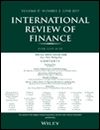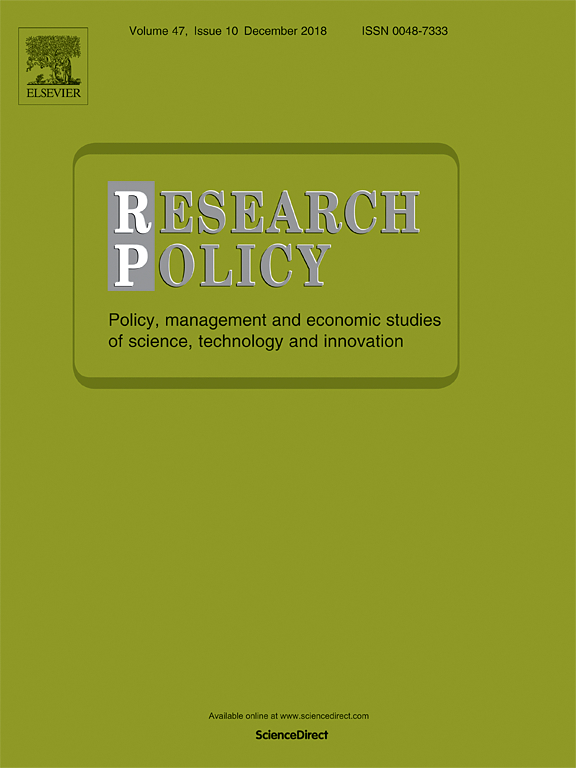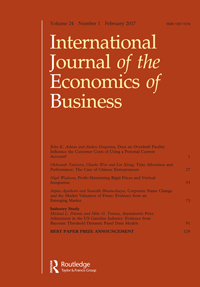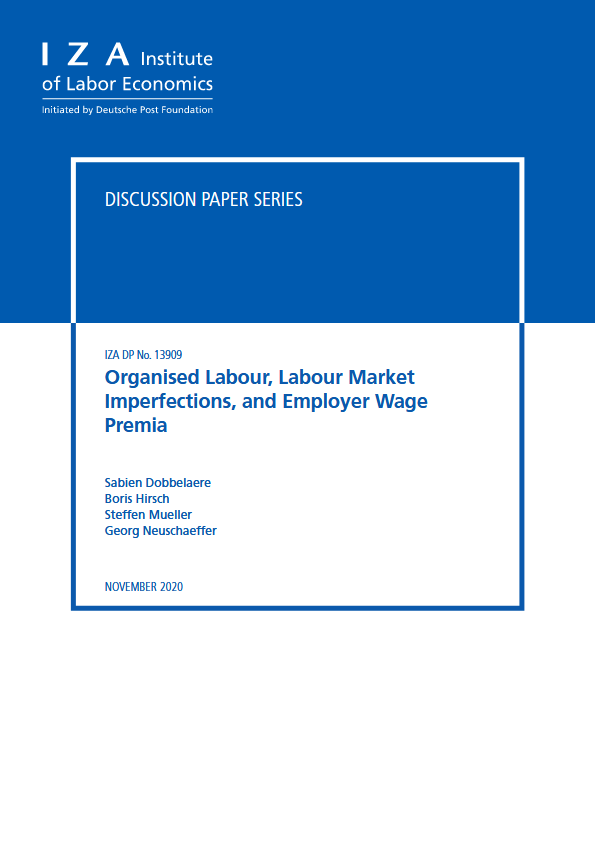Regulierung internationaler Finanzmärkte und Banken
Die Forschungsgruppe "Regulierung internationaler Finanzmärkte und Banken" analysiert internationale Kapitalströme und die Auswirkungen von Regulierungsänderungen auf die Finanzstabilität. Integrierte Finanzmärkte begünstigen eine effiziente Kapitalallokation und Risikoteilung – sie erleichtern aber auch die grenzüberschreitende Übertragung von Schocks.
Dementsprechend hat sich die Bankenregulierung in den letzten Jahren weiterentwickelt, wobei die vollen Auswirkungen dieser Reformen noch unklar sind. Daher konzentriert sich die Forschung der Gruppe auf zwei Bereiche:
Erstens werden die Haupttreiber internationaler Kapitalströme und deren Auswirkungen auf Finanzstabilität untersucht. Zeiten hoher Finanzintegration sind oft gefolgt von Krisen mit nachhaltigen realwirtschaftlichen Folgen. Ziel ist es, zu verstehen, wie eine stabile und effektive Kreditvergabe gewährleistet werden kann.
Zweitens wird untersucht, wie sich Veränderungen in der Regulierung und Aufsicht auf das grenzüberschreitende Bankgeschäft auswirken, insbesondere im Kontext der europäischen Integration. Dazu gehört die Bewertung des Trade-offs zwischen regulatorischer Harmonisierung und unbeabsichtigten Marktverzerrungen.
Zwei Datenprojekte tragen zu diesen Forschungsthemen bei: die International Banking Library, eine webbasierte Plattform für den Forschungsaustausch mit einem vierteljährlichen Newsletter, der mehr als 700 Abonnenten erreicht, und die Financial Markets Directives Database, die die Umsetzung der wichtigsten EU-Vorschriften im Bereich Finanzmärkte mit besonderem Schwerpunkt auf der Europäischen Bankenunion dokumentiert. Gemeinsam fördern sie eine evidenzbasierte Politikanalyse und erhöhen die Sichtbarkeit der Gruppe.
Forschungscluster
Wirtschaftliche Dynamik und StabilitätIhr Kontakt

- Abteilung Finanzmärkte
PROJEKTE
10.2021 ‐ 06.2025
Distributional Effects of Macroeconomic Policies in Europe (DEMAP)
Leibniz-Gemeinschaft
Das Projekt untersucht wie politische Maßnahmen auf dem Level der Europäischen Union, wie zum Beispiel der European Recovery Fund, die Ungleichheit zwischen Haushalten beeinflusst.
07.2017 ‐ 12.2022
Die politische Ökonomie der europäischen Bankenunion
Europäischer Sozialfonds (ESF)
Ursachen für nationale Unterschiede in der Umsetzung der Bankenunion und daraus resultierende Auswirkungen auf die Finanzstabilität.
01.2015 ‐ 12.2017
Dynamic Interactions between Banks and the Real Economy
Deutsche Forschungsgemeinschaft (DFG)
Referierte Publikationen

Monetary Policy through Exchange Rate Pegs: The Removal of the Swiss Franc-Euro Floor and Stock Price Reactions
in: International Review of Finance, Nr. 4, 2021
Abstract
The Swiss National Bank abolished the exchange rate floor versus the Euro in January 2015. Using a synthetic matching framework, we analyze the impact of this unexpected (and therefore exogenous) policy change on the stock market. The results reveal a significant level shift (decline) in asset prices following the discontinuation of the minimum exchange rate. As a novel finding in the literature, we document that the exchange‐rate elasticity of Swiss asset prices is around −0.75. Differentiating between sectors of the Swiss economy, we find that the industrial, financial and consumer goods sectors are most strongly affected by the abolition of the minimum exchange rate.

Macroprudential Policy and Intra-Group Dynamics: The Effects of Reserve Requirements in Brazil
in: Journal of Corporate Finance, December 2021
Abstract
<p>We examine whether liquidity dynamics within banking groups matter for the transmission of macroprudential policy. Using matched bank headquarters-branch data for identification, we find a lending channel of reserve requirements for municipal branches whose headquarters are more exposed to the policy tool. The result is driven by the 2008–2009 crisis and is stronger for state-owned branches, especially when being less profitable and liquidity constrained. These findings suggest the presence of cross-regional distributional effects of macroprudential policies operating via internal capital markets.</p>

Global Syndicated Lending during the COVID-19 Pandemic
in: Journal of Banking and Finance, December 2021
Abstract
This paper examines the pricing of global syndicated loans during the COVID-19 pandemic. We find that loan spreads rise by over 11 basis points in response to a one standard deviation increase in the lender's exposure to COVID-19 and over 5 basis points for an equivalent increase in the borrower's exposure. This implies excess interestof about USD 5.16 million and USD 2.37 million respectively for a loan of average size and duration. The aggravating effect of the pandemic is exacerbated with the level of government restrictions to tackle the virus's spread, with firms’ financial constraints and reliance on debt financing, whereas it is mitigated for relationship borrowers, borrowers listed in multiple exchanges or headquartered in countries that can attract institutional investors.

Does Gender Affect Innovation? Evidence from Female Chief Technology Officers
in: Research Policy, Nr. 9, 2021
Abstract
In this paper, we examine the impact of female Chief Technology Officers (CTOs) on corporate innovation. We find that firms with female CTOs are more innovative (as captured by both patent counts and patent citations) than firms with male CTOs. This effect is more pronounced for firms with a stronger innovation-supportive culture, firms with female CEOs, and when female CTOs are more powerful. Using mediation analyses, we further validate that female CTOs’ transformational leadership style is a plausible mechanism through which they affect innovation positively.

Quid Pro Quo? Political Ties and Sovereign Borrowing
in: Journal of International Economics, November 2021
Abstract
Do stronger political ties with a global superpower improve sovereign borrowing conditions? We use data on voting at the United Nations General Assembly along with foreign aid flows to construct an index of political ties and find evidence that suggests stronger political ties with the US is associated with both better sovereign credit ratings and lower yields on sovereign bonds especially among lower income countries. We use official heads-of-state visits to the White House and coalition forces troop contributions as additional measures of the strength of political ties to further reinforce our findings.
Arbeitspapiere

Friend or Foe? Crowdfunding Versus Credit when Banks are Stressed
in: IWH Discussion Papers, Nr. 8, 2015
Abstract
Does bank instability push borrowers to use crowdfunding as a source of external finance? We identify stressed banks and link them to a unique, manually constructed sample of 157 new ventures seeking equity crowdfunding. The sample comprises projects from all German equity crowdfunding platforms since 2011, which we compare with 200 ventures that do not use crowdfunding. Crowdfunding is significantly more likely for new ventures that interact with stressed banks. Innovative funding is thus particularly relevant when conventional financiers are facing crises. But crowdfunded ventures are generally also more opaque and risky than new ventures that do not use crowdfunding.

Explaining Regional Disparities in Housing Prices across German Districts
in: IZA Institute of Labor Economics, March 2022
Abstract
Over the last decade, German housing prices have increased unprecedentedly. Drawing on quality-adjusted housing price data at the district level, we document large and increasing regional disparities: growth rates were higher in 1) the largest seven cities, 2) districts located in the south, and 3) districts with higher initial price levels. Indications of price bubbles are concentrated in the largest cities and in the purchasing market. Prices seem to be driven by the demand side: increasing population density, higher shares of academically educated employees and increasing purchasing power explain our findings, while supply remained relatively constrained in the short term.















